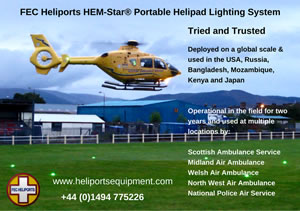World Customs Organization2003-01-13 16:40:06
The 48th Session of the World Customs Organization's Policy Commission (PC)
The 48th Session of the World Customs Organization's Policy Commission (PC) was held from 11 to 13 December 2002 in Istanbul. Under the chairmanship of Pravin Gordhan (South Africa), the PC approved the work carried out over the past six months and made recommendations to the Secretariat concerning actions to be pursued to secure the international trade supply chain and build the capacities of Customs administrations.
The key topic discussed during the session was the progress report of the WCO Task Force, set up in September 2002 to devise instruments to increase the security of the trade supply chain without hindering international trade. The PC Members instructed the Chair of the Task Force, Douglas Tweddle (United Kingdom), to pursue and complete :
- The examination of the WCO Customs Data Model and selection of data elements to be used to identify high-risk consignments.
- The examination of the legal basis and procedures necessary for advance electronic transmission of Customs data.
- The preparation of guidelines to increase co-operation between Members and the private sector;
The creation of a database on technologies and techniques to secure the trade supply chain.
The PC also stressed the need to undertake preparatory work permitting the effective implementation of the instruments developed. Member Customs administrations were therefore invited to present, at political level, the key role they play in terms of security and facilitation by duly informing the various relevant Ministers as well as international and regional organizations such as the G8, G20 or regional trade groupings. The support and commitment of the private sector must also be obtained by recalling that increased compliance with minimum standards will lead to greater trade facilitation.
The PC Members also reiterated their willingness to work towards sustainable capacity building within Customs administrations and stressed the need to encourage multilateral mobilization in this respect. It is vital that States adopt legislation tailored to the current trade environment and that they equip their Customs administrations with the requisite operational capacities so that they can implement the legislation effectively.
To support the development of national action plans, the PC encouraged the Secretariat to help with the preparation of dossiers aimed at international funding institutions and to act as an intermediary regarding the supply of and demand for outside funding. The drafting of a "blueprint" will also serve as a model, enabling Member administrations and funding institutions to identify shortcomings and to pinpoint more accurately each Member's needs.
At the next Council sessions in June 2003, the Heads of Customs of the WCO's 161 Member administrations will assess the progress made in terms of developing international standards relating to trade security and capacity building.
The 48th Session of the World Customs Organization's Policy Commission (PC) was held from 11 to 13 December 2002 in Istanbul. Under the chairmanship of Pravin Gordhan (South Africa), the PC approved the work carried out over the past six months and made recommendations to the Secretariat concerning actions to be pursued to secure the international trade supply chain and build the capacities of Customs administrations.
The key topic discussed during the session was the progress report of the WCO Task Force, set up in September 2002 to devise instruments to increase the security of the trade supply chain without hindering international trade. The PC Members instructed the Chair of the Task Force, Douglas Tweddle (United Kingdom), to pursue and complete :
- The examination of the WCO Customs Data Model and selection of data elements to be used to identify high-risk consignments.
- The examination of the legal basis and procedures necessary for advance electronic transmission of Customs data.
- The preparation of guidelines to increase co-operation between Members and the private sector;
The creation of a database on technologies and techniques to secure the trade supply chain.
The PC also stressed the need to undertake preparatory work permitting the effective implementation of the instruments developed. Member Customs administrations were therefore invited to present, at political level, the key role they play in terms of security and facilitation by duly informing the various relevant Ministers as well as international and regional organizations such as the G8, G20 or regional trade groupings. The support and commitment of the private sector must also be obtained by recalling that increased compliance with minimum standards will lead to greater trade facilitation.
The PC Members also reiterated their willingness to work towards sustainable capacity building within Customs administrations and stressed the need to encourage multilateral mobilization in this respect. It is vital that States adopt legislation tailored to the current trade environment and that they equip their Customs administrations with the requisite operational capacities so that they can implement the legislation effectively.
To support the development of national action plans, the PC encouraged the Secretariat to help with the preparation of dossiers aimed at international funding institutions and to act as an intermediary regarding the supply of and demand for outside funding. The drafting of a "blueprint" will also serve as a model, enabling Member administrations and funding institutions to identify shortcomings and to pinpoint more accurately each Member's needs.
At the next Council sessions in June 2003, the Heads of Customs of the WCO's 161 Member administrations will assess the progress made in terms of developing international standards relating to trade security and capacity building.
For more information contact:
30, Rue Du Marché
B-1210 BRUSSELS
Belgium
Tel: +32 2 209 92 11
Fax: +32 2 209 92 92
